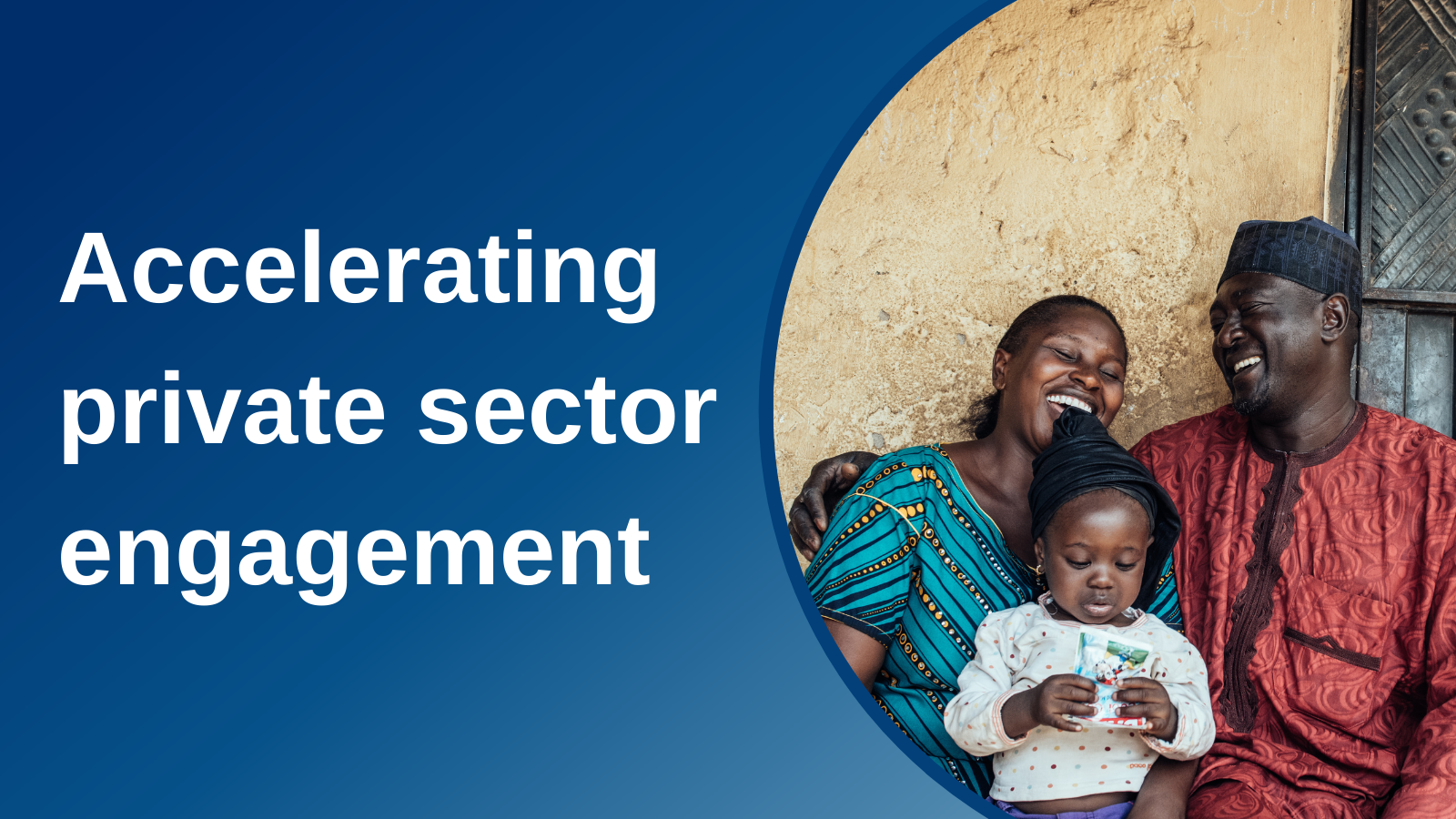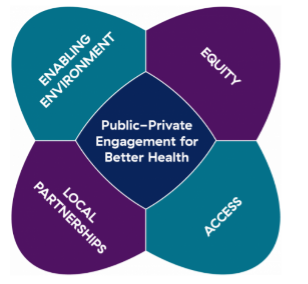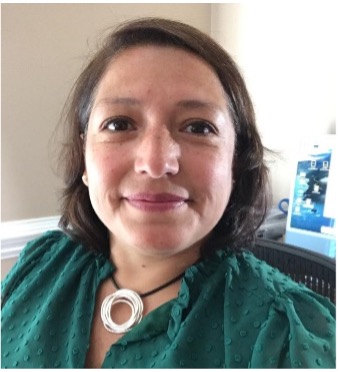Legacy series attracts hundreds to hear lessons from SHOPS Plus

June to mid-July 2021, the SHOPS Plus project hosted a four-part series of capstone webinars to share knowledge on private sector engagement. Project experts discussed achievements and lessons from the past six years in stewarding the private sector, improving access to priority products and services, and supporting health markets. The final event featured panelists from USAID, FP2030, the Packard Foundation who ventured forth on what the future holds. On average, each event garnered 700 registrants from 80 countries with more than 200 people attending live.
Project culminates in far-reaching achievements

As the project comes to close, the series highlighted its achievements in family planning, HIV, and child health. From 2015 to 2020, SHOPS Plus reached an annual average of almost 40 million people with health messages, generated 2.5 million couple years of protection, fostered a landmark health finance agreement for people living with HIV, and facilitated the treatment of over 2 million cases of childhood diarrhea with zinc and oral rehydration solution. This infographic shows the project’s impact in the enabling environment, equity, increasing access, and forging partnerships. To share its achievements and learnings, the project created an award-winning microsite, which served as the hub for the end-of-project webinar series, the impact infographic, the Accelerating Private Sector Engagement publications series, and related videos. Special features of the site included introductory remarks by Elaine Menotti, health science specialist and deputy division chief at USAID, and an overview of the project's impact from Susan Mitchell, project director.
Galvanizing strategic public-private engagement

SHOPS Plus kicked off the webinar series with highlights from stewarding the private sector. In Senegal, a focus on collecting and using data on the private health sector and strong country ownership paved the way for better stewardship. In Tanzania, SHOPS Plus worked at the national level to help improve the regulatory environment and at the subnational level to broker partnerships with private providers. In India, the project strengthened a group of condom manufacturers who collaborated to expand the condom market. Read more.
The crucial role of health financing
SHOPS Plus continued the series with a webinar on health financing. In Tanzania, the project expanded enrollment of private providers in government-funded insurance programs. In Senegal, a pilot led to an increased number of private providers contracting with community-based insurance schemes—an effort that aligned with the national strategy. In the Dominican Republic, the project helped NGOs contract with the national health insurance scheme. Read more.
Fostering optimal health markets

Third in the series, SHOPS Plus highlighted its experience supporting health markets to expand access to priority health products and services. In Uganda, the project encouraged the registration of HIV self-test kits. SHOPS Plus conducted a multi-country analysis of patterns and generated heatmaps that showed the use of the private and public sectors for family planning products and services. The project supported a pharmacists’ association to change national policy, allowing pharmacists to administer intramuscular injectable contraceptives. SHOPS Plus supported the introduction of several new priority health products and demand interventions—several in fragile states. Read more.
Reflecting on progress, looking ahead

In the final series webinar, project leaders shared their perspectives on engaging the private sector in health. They noted success in facilitating the participation of private providers in government-sponsored health financing programs; achieving more scale and sustainability; and sharing new information on where women access their contraception across Family Planning 2020 focus countries. Other achievements included integrating user-centered digital approaches throughout its programs and reaching 40 million people with health messages. The webinar closed with several guest speakers predicting future trends in private sector engagement. Read more.
Learn more at www.shopsplusproject.org/EOPSeries.